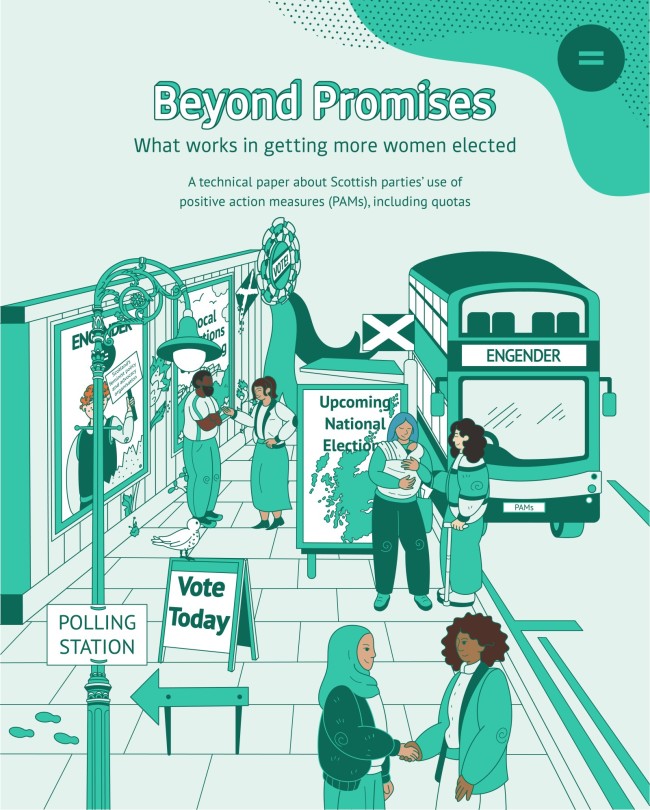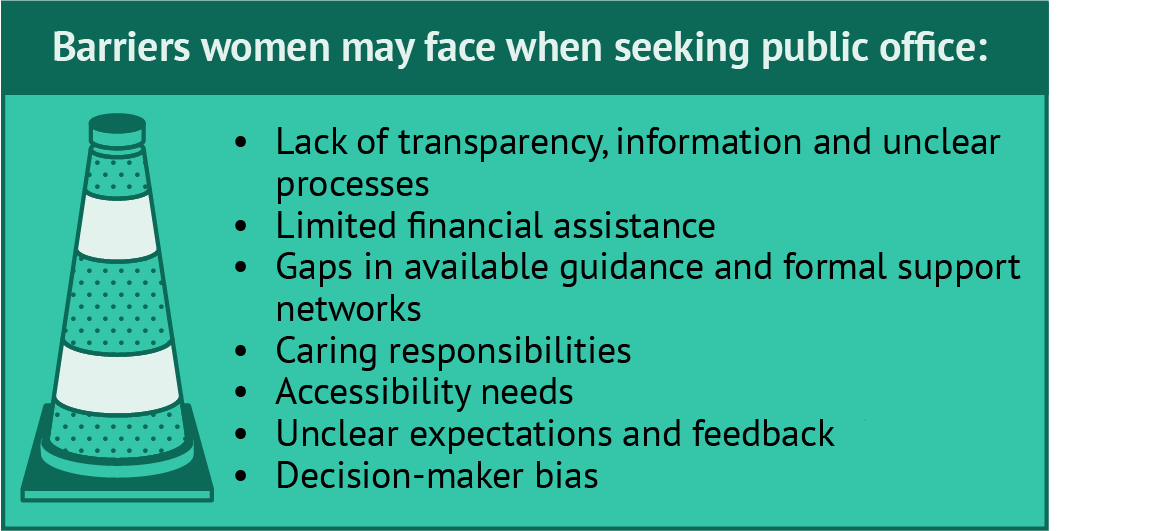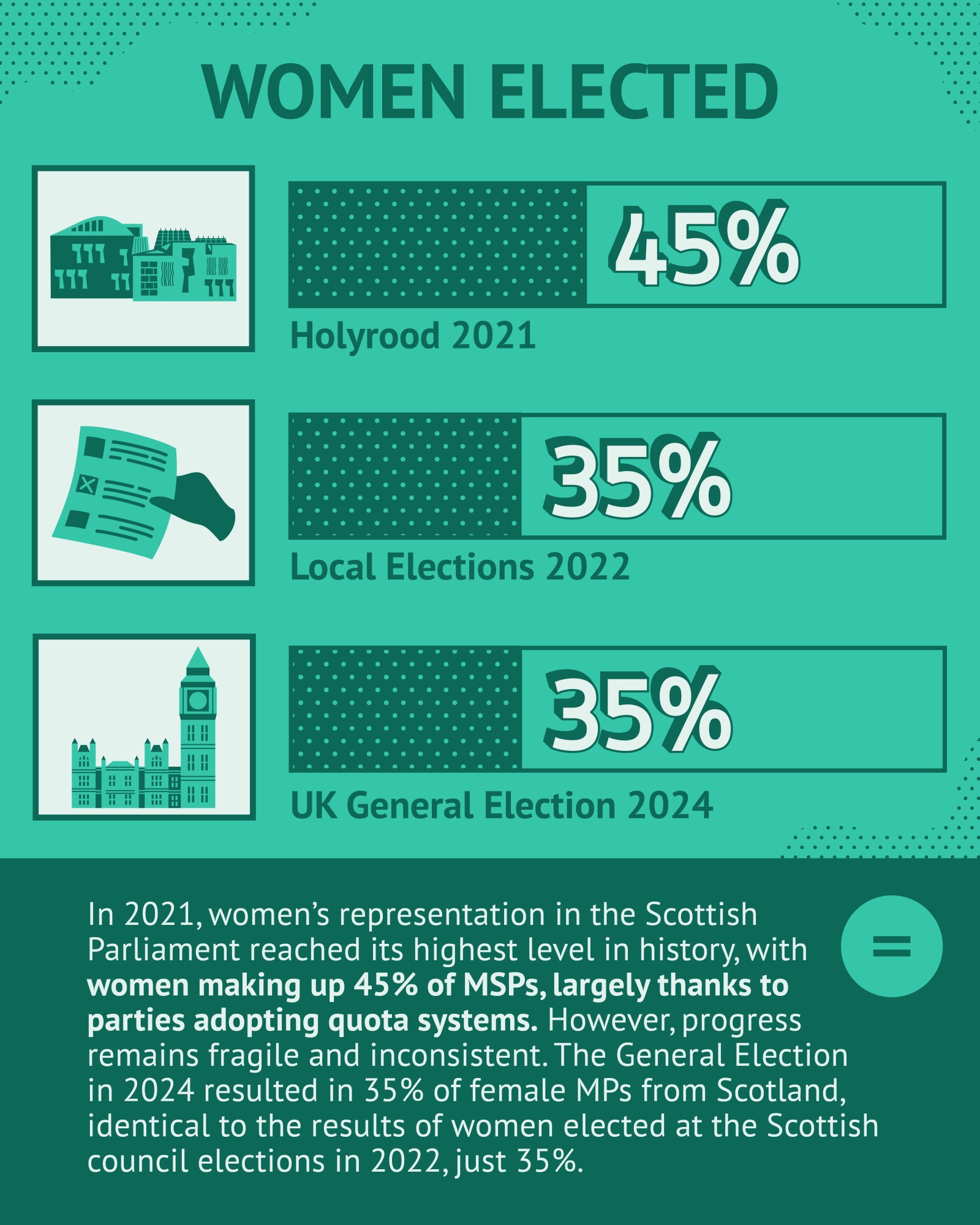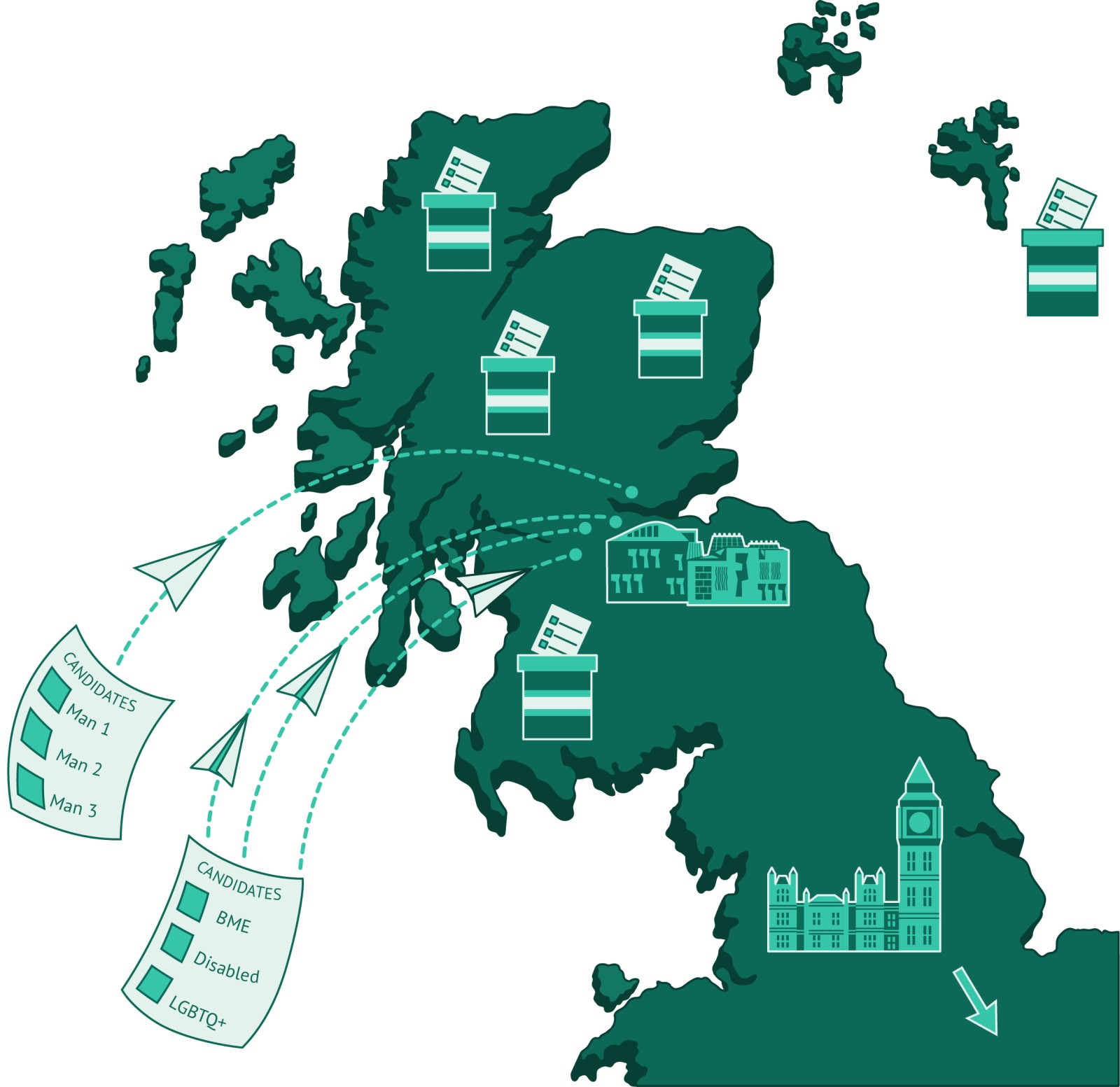Engender blog
Engender launches report on how parties can take action to get more women elected
Today, Engender launches our new report “Beyond Promises: What works in getting more women elected”, exploring the use and impact of gender quotas and other Positive Action Measures (PAMs) in Scottish political parties. Find out more about the report below.

The message is clear: women bring essential perspectives to politics, but they are still being pushed to the margins.
 Consistent use of positive action tools leads to better representation, but tokenism, cultural resistance, and lack of intersectionality continue to hold us back. From social media abuse to internal party resistance, the barriers are systemic and deeply entrenched. Yet, women also spoke of passion, purpose, and the drive to make politics better—not just for themselves, but for those who come after.
Consistent use of positive action tools leads to better representation, but tokenism, cultural resistance, and lack of intersectionality continue to hold us back. From social media abuse to internal party resistance, the barriers are systemic and deeply entrenched. Yet, women also spoke of passion, purpose, and the drive to make politics better—not just for themselves, but for those who come after.
Drawing on data from three election cycles (Holyrood 2021, Scottish Local Elections 2022, and UK General Election 2024), alongside survey responses from 159 women and 15 in-depth interviews, the report provides a detailed analysis of how PAMs have shaped women’s political representation in Scotland.
 Quotas and PAMs are effective tools: The consistent use of PAMs correlates with higher levels of women’s representation. In 2021, women made up 45% of MSPs - the highest in Scottish Parliament history -largely due to quota use. However, this progress is fragile: women made up only 35% of Scottish MPs in the 2024 General Election and 35% of councillors in 2022, where PAMs were inconsistently applied.
Quotas and PAMs are effective tools: The consistent use of PAMs correlates with higher levels of women’s representation. In 2021, women made up 45% of MSPs - the highest in Scottish Parliament history -largely due to quota use. However, this progress is fragile: women made up only 35% of Scottish MPs in the 2024 General Election and 35% of councillors in 2022, where PAMs were inconsistently applied. No party has achieved gender parity across all levels of government, and the underrepresentation of Black and minority ethnic, disabled, and younger women remains stark.
Inconsistent application of PAMs leads to regression.
Labour and the Greens have a stronger track record with all-women shortlists, zipping and twinning, but remain inconsistent on a local level.
The SNP increasingly uses PAMs and has attempted to support disabled and minority ethnic candidates specifically, but the approach is not as consistent as necessary or is often applied in unwinnable seats.
The Liberal Democrats’ approach to implementing gender-balancing quotas has been mixed. Without a consistent framework, it heavily relies on individual internal champions.
The Conservatives often demonstrate opposition to quotas. However, some members are critical of this attitude and wish for internal reform.
The evidence is clear: PAMs work, but only when applied consistently, strategically, and with a commitment to intersectionality, focusing on Black and minority ethnic, disabled and young women. Together, we can make politics a place where all women belong.
 Equal Representation Development Officer Noomi Anyanwu states:
Equal Representation Development Officer Noomi Anyanwu states:
“As Scotland approaches the 2026 and 2027 elections, political parties face a critical opportunity to embed meaningful change. Without action, recent gains risk being reversed.
Some cross-cutting challenges when it comes to the application of positive action measures (PAMS) include tokenistic use of PAMs, cultural resistance within parties to their application, lack of intersectional approaches, the importance of local politics and legal uncertainty.
The women we talked to told us that representation matters. That support networks matter. That visibility matters. And that change is not only necessary—it’s urgent.”
Read the full report including vital recommendations for action here.
Share this post on …
Comments: 0 (Add)
Sign up to our mailing list
Receive key feminist updates direct to your inbox:
